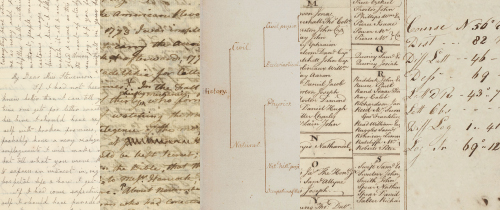Digitizing Early Massachusetts Court Records

MHS Event
Author: Sally Hadden, University of Western Michigan
Comments: Jessica Otis, George Mason University; Susanna Blumenthal, University of Minnesota
Massachusetts Superior Court of Judicature records represent one of the fullest collections of colonial court documents in North America, covering the entirety of the eighteenth century. This seminar explores the process of transcribing, annotating, and presenting this information via Mirador, the browser-based interface that gives the end user control over how much or how little information to display. The database used to capture annotations and make them searchable using complex queries will also be described. This project is underwritten by the Ames Foundation and the Colonial Society of Massachusetts.
The Shapiro Digital history Seminar invites you to join the conversation. Seminars bring together a diverse group of scholars and interested members of the public to workshop a pre-circulated paper. Learn more.
Please note, this is a hybrid event which may be attended either in person at the MHS or virtually on the video conference platform, Zoom. Registrants will receive a confirmation message with attendance information.
Subscribers may login to view currently available essays.
Online Event
